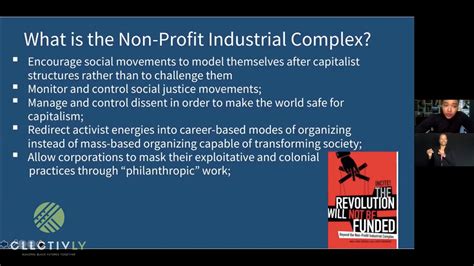Nonprofit organizations often evoke images of altruism and community-focused efforts, yet a closer examination reveals a murkier reality. In many American cities, particularly those with a robust progressive ethos, the seemingly benevolent world of nonprofits can mask systemic inefficiencies and, at times, outright corruption. This phenomenon — sometimes referred to as the ‘Nonprofit Industrial Complex’ — has significant implications for urban governance and public trust.
One glaring issue is the lack of oversight and accountability. In places like Seattle, local governments have cycled substantial sums of taxpayer money into nonprofit programs without sufficient tracking mechanisms. Take, for instance, the funds allocated during the height of Black Lives Matter protests. Citizens saw their hard-earned dollars diverted from essential city services like education and infrastructure into various unproven and unmonitored initiatives. This lack of transparency culminates in misuse of funds and scant measurable outcomes, leaving taxpayers questioning the efficacy of such expenditures.
Moreover, the intertwining of politics and nonprofit operations exacerbates the problem. Several commenters highlighted the uncompetitive processes and lack of public input in awarding contracts. These sole-source awards often emerge from ideological motivations rather than performance-based metrics or community needs assessments. Hearings held at inaccessible times, activist-led disruptions, and a general apathy from overburdened citizens contribute to this opaque milieu. For instance, public property and significant financial resources were directed into the ‘homeless-industrial complex’ with minimal public scrutiny, resulting in muddled and often ineffective responses to homelessness.
The issues in nonprofit management are not confined to the United States. Similar patterns emerge globally, as seen in the case of Australia’s nursing home industry and varying levels of accountability in handling public funds. Yet, while the context may vary, the core problem remains: nonprofits, free from rigorous oversight, can fall prey to inefficiency and opportunism. This misuse is further enabled by the ‘performative socialism’ of urban areas, where high tax rates support extensive public spending without corresponding improvements in public services.
Critics argue that the failure of these nonprofit initiatives is a broader indictment of urban governance under progressive administrations. Yet, the central failure may lie not in ideology but in execution and accountability. Many progressive policies aim to address legitimate social crises but collapse under the weight of bureaucratic mismanagement and lack of transparency. Real reform requires stringent oversight, transparent processes, and an emphasis on measurable outcomes. This means involving public stakeholders throughout decision-making processes and ensuring funds are allocated based on competitive and performance-based criteria.
Not all critiques of urban nonprofit practices are grounded in political partisanship. Many who voice concerns about the ‘nonprofit-industrial complex’ are motivated by a desire for better, more accountable urban governance. For instance, the systemic issues around affordable housing highlight the necessity for a multifaceted approach. While the ‘Housing First’ model has seen some success, its implementation must be tailored to local contexts, with adequate support for those facing underlying issues like addiction or mental health problems. This requires collaboration across government, community, and private sectors—not just funneling money into nonprofit coffers without accountability.
Solutions to these complex issues must be comprehensive and informed by best practices from around the world. Finland’s model of housing the homeless, which integrates government-run programs with strong regulatory frameworks, serves as a potential blueprint. Nonetheless, its application must consider the unique challenges faced by individual American cities, especially those with entrenched interests and political factions. Finally, restoring local journalism and increasing civic engagement are vital. As everyday citizens become more informed and involved, they can better hold local leaders and nonprofit beneficiaries accountable, fostering a governance culture that genuinely serves public interests.


Leave a Reply